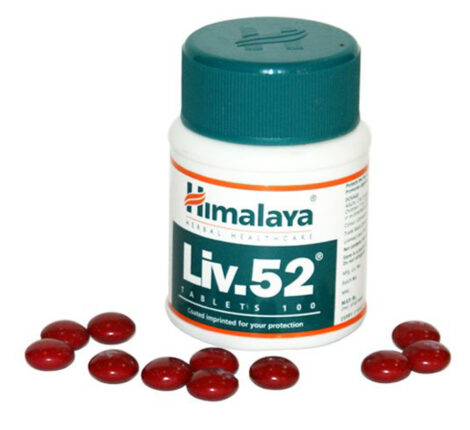The Concept Of Copyright Society Under The Copyright Act, 1957
INTRODUCTION
Copyright Societies are societies formed by authors and other owners of original works. These societies are the only organizations that have the power to grant copyright licenses to any applicant. No author or the owner, by himself, can keep a check on all the users who are using his copyright. It is tedious and time-consuming. If these authors or owners are members of a national society like any Copyright Society, it will be easier for them to check upon all the users who have secured a license of their copyright. Due to proper management of the licensed users, the societies can guarantee honest and complete yield of royalties. The societies, being recognized internationally, work with international organizations to reap maximum benefits for the copyright holders.
Copyright societies are registered in India under Section 33 of the Copyright Act, 1957. The minimum number of members required for the registration of a copyright society is seven. The society remains registered for a period of five years and it must be renewed after every five years for it to stay working. If the society does not renew its term after the expiry, the society stands abandoned and it cannot issue licenses any further.
TYPES OF COPYRIGHT SOCIETIES
Currently, there are three copyright societies in India. They are as follows:
- Indian Reprographic Rights Organization (IRRO) – IRRO is a copyright society established in 2000 which focuses on authors and publishers. It registers and gives out licenses only in regards to literary works of authors or publishers. The society collects royalties from the users and transfers the same to the authors or publishers, as the case may be. IRRO has an international affiliation to the International Federation of Reproduction Rights Organizations (IFRRO). This is the only copyright society of this kind to exist in India.
- Indian Performing Rights Society (IPRS) – IPRS was established in 1969. This society deals with the registration and licensing of copyrights of members relating to the music industry. The members mainly include the lyricists, music composers, and publishers who are collectively called the authors. The society protects the copyright of its members and collects royalties on behalf of the members. The society then, after deducting some of the amount from the royalties as administrative fees, transfers the rest of the money to the respective members.
- Phonographic Performance Limited India (PPL India) – PPL is a copyright society established in 1941 to keep a check on radio broadcasting and public performance of songs. The songs could be any national or international songs irrespective of its language or fame. The main function of this society is that it issues license to those people who wish to perform any songs publicly either in any social events, functions or shows or other places such as discos, malls etc.
CODE OF CONDUCT OF THE COPYRIGHT SOCIETIES
Every copyright society is to conform to the following Code of Conduct:
- Website of the Society- Each society is supposed to include the following in its website- the certificate of registration of the society; memorandum of association, articles of association and constitution or charter; the list containing all the members of the General Body; the names and addresses of the chairman, the members of the Governing Council and other officers in the society; the categories of works for which the society has the right or has been authorized to grant license; the schemes of the copyright society; the annual report and audited accounts; format of license agreement; details of all the licenses available; the association with foreign societies if any for the collection of royalties; contact details and code of conduct.
- Members- the members of the copyright societies are to be treated fairly, courteously, honestly, impartially and make the dealings with the members transparent.
FUNCTIONS OF THE COPYRIGHT SOCITIES
The copyright societies have the following functions:
- Issue of license and collection of fees– the prime function of copyright societies is issuing license, collecting fees and distributing the collected fees to the respective authors. The society is to collect fees in accordance with the scheme of tariffs. The right for such collection must be given by the authors to the societies in writing for a specified period of time. The fee so collected should be distributed to the authors after deducting a fee not exceeding 15% of the total amount collected.
- Administration of rights of the owners by the copyright society- this function of the copyright society is covered in Section 34 of the Copyright Act, 1957. According to the section, the copyright society has the discretion to accept the authorization to administer the issue of license or collection of fees or both in writing by the author and/or any other owner. The author or the owner has the right to revoke or withdraw the authorization given to such a society and the society is to comply with the same.
The copyright society will have to get into agreements with foreign societies in order to entrust the right to collect royalties from the users of that foreign country. Provided that such a country shall not discriminate in regards to the terms and conditions of licensing or distribution of royalties between Indian authors and other authors.
The copyright society may also issue license, collect fees, distribute the collected fees as under section 30 of the Act or perform any other function as under section 35 of the Act.
CASE LAWS
- IPRS Limited v Hello FM Radio (Malar publications Limited):
In this case, Hello FM Radio broadcasted songs without license and IPRS Ltd prayed for seeking of license or discontinuing the broadcasting of the songs. The court granted injunction as the Radio was broadcasting songs without any license from the society.
- Phonographic Performance Limited v Hotels:
PPL took some of the hotels to court for playing songs on New Year’s party without paying any fees. The court ordered the hotels to pay the required fees.
- Phonographic Performance Limited and Others v Music Broadcast Private Limited and Others:
In this case, the Music Broadcast Pvt Ltd appealed to the Bombay High Court as the PPL did not grant permission for use of songs by the company. The court for the very first time issued compulsory licensing in copyrights and asked PPL to grant license for the broadcasting of the songs.
- Radio Today Broadcasting Limited v. Indian Performing Rights Society[1]:
In this case, Radio Today Broadcasting obtained license by the Central Government to run in India. Radio Today refused to pay royalties to IPRS stating that the songs were composed and marketed by the producers and permission from the producers is necessary and not from IPRS. The court held that IPRS has the right to receive royalties and Radio Today is obliged to pay the same.
THE EFFECT OF THE 2012 AMENDMENT ON COPYRIGHT SOCIETIES
The Copyright Act was amended in the year 2012 in view to bring a just and equitable administration of copyrights. With the amendment, a new provision Section 33(3A) was added which mandated every copyright society which is involved in licensing and collecting of royalties to register within a year of the amendment. The provision required the existing copyright societies to re-register as a copyright society. The problem that was seen was that there was no punishment mentioned for the non-registration of these copyright societies.
With the amendment and addition of subsection (1) to section 33 to the Copyright Act, the law states that only copyright societies have the right to license a work. But Sections 18 and 30 provide an alternative method of licensing. Section 18 enables a third party authorized by the owner to license and manage the creation, and Section 30 enables the owner himself to license his work to anybody he likes. This is ambiguous as Section 33 and sections 18 and 30 contradict each other. This ambiguity causes confusion to companies like Novex Communications (P) Ltd which, under section 30 acts as the agents and under section 18 is authorized to grant licenses. By making only copyright societies authorized to issue licenses, companies like Novex are left in a dilemma of its validity.
CONCLUSION
It can therefore be concluded that copyright societies are of great help and importance. They make the licensing and collection of royalties more systematic and efficient. Having a society keep track of all the licenses and uses of the owner’s works makes sure that there are no unauthorized users and that there are no infringements of copyrights gone unnoticed. However, as seen above, there is an ambiguity with the amendment of 2012. Making copyright societies the only organizations empowered to license a copyrighted work is an efficient move, but with the introduction of such a strict rule, the other rules already in the Act are disturbed and hence must be corrected to avoid any more confusions.
References
1. Akash Gupta, Copyright Societies And The Copyright (Amendment) Act, 2012 https://www.mondaq.com/india/copyright/750676/copyright-societies-and-the-copyright-amendment-act-2012
2. Sandeep Bhargava, List of Registered Copyright Societies in India https://medium.com/@sandeep.bhargava/list-of-registered-copyright-societies-in-india-d0ee68c139ed
3. Gaurav Dwaj and Arjun Uppal, Copyright Society Under The Copyright Act, 1957 https://www.mondaq.com/india/copyright/463106/copyright-society-under-the-copyright-act-1957
4. Pradnya Copyright Societies http://www.legalservicesindia.com/article/417/Copyright-Societies.html
5. Copyright Societies https://copyright.gov.in/documents/copyright%20societies.pdf
[1] Radio Today Broadcasting Limited v. Indian Performing Rights Society 2006 (4) CHN 366, 2007 (34) PTC 174 Cal
Disclaimer: This article is intended to provide general guidance to the subject matter. It does not contain legal advice. For any specific advice/corrections, write to [email protected]
© ZEST IP




